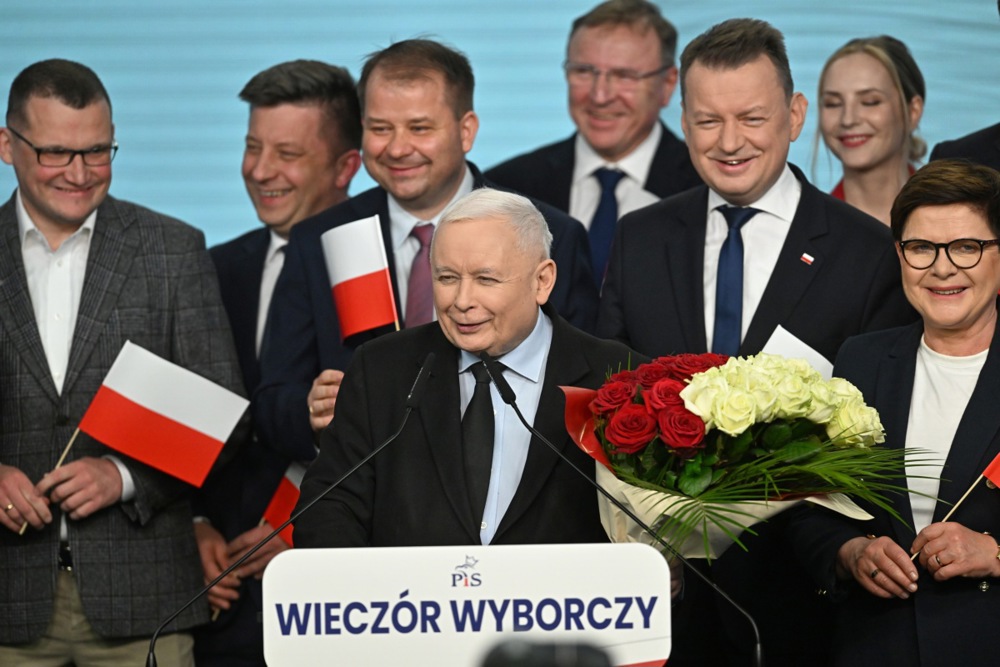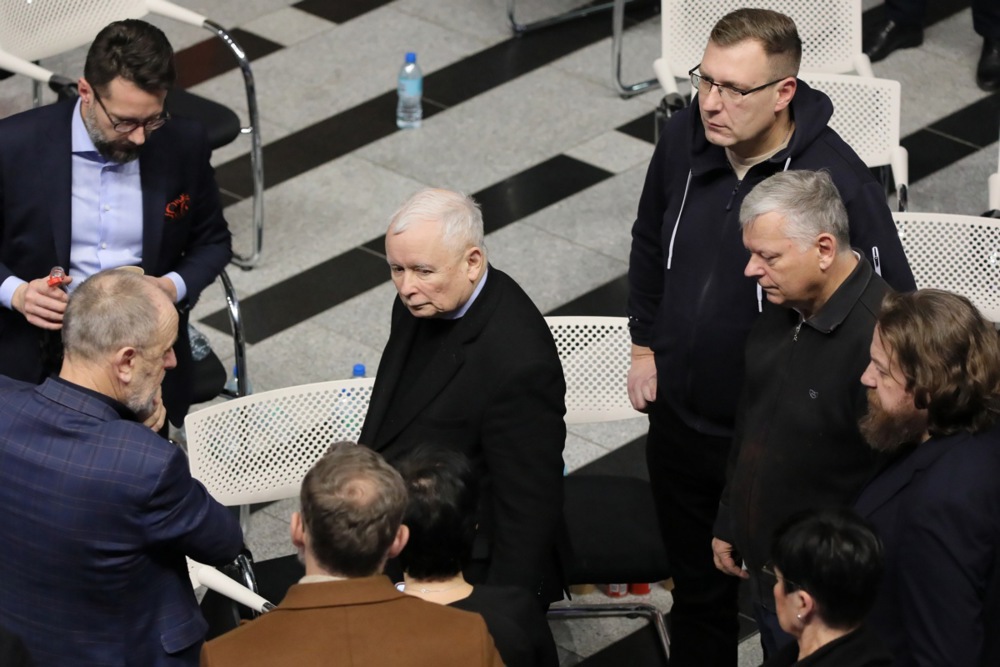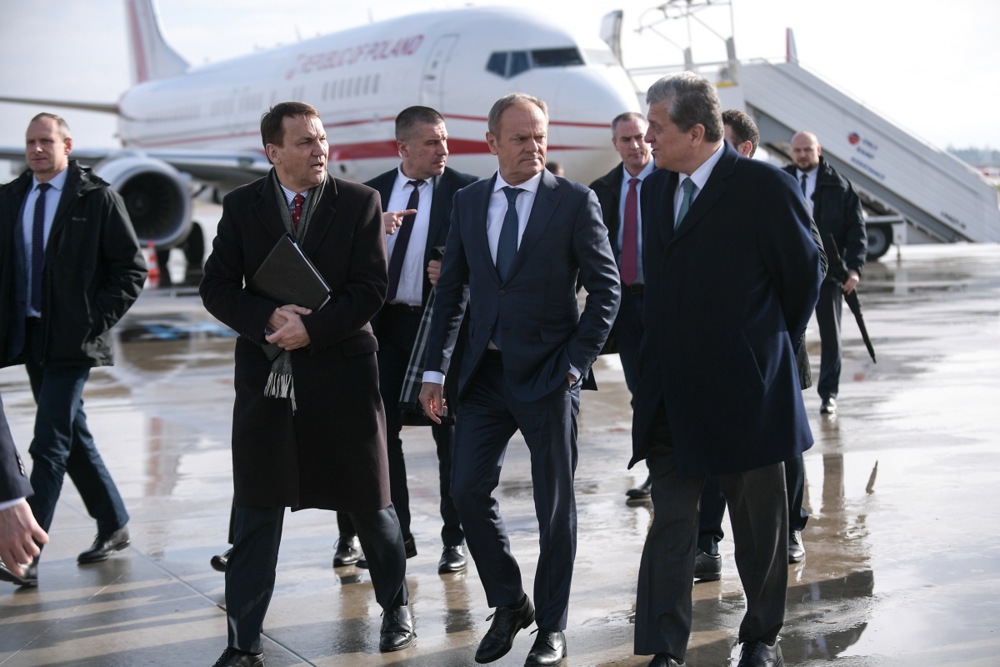Poland’s ruling Civic Coalition (KO) has chosen the mayor of Warsaw Rafał Trzaskowski in a primary election to represent the party in next year’s presidential election.
The main opposition party, the Conservatives (PiS), has decided to support the head of the National Institute of Remembrance (IPN) Karol Nawrocki, who is not a member of the party. Instead, he is an “independent citizens” presidential candidate.
Trzaskowski’s victory, backed by almost 75 per cent of the 22,000 party members who took part in the primary held via text message voting, was announced on November 23 at a meeting of the party’s ruling body.
The Warsaw mayor’s opponent in the primary was foreign minister Radosław Sikorski who argued that he had more international and security experience than the Warsaw mayor. His attempt to persuade the party ended in an even larger defeat than the one he suffered when he ran in a primary against Bronisław Komorowski in 2010.
Announcing the result, KO party leader and Prime Minister Donald Tusk said “the primary had mobilised the party” and that the choice was made between “two excellent candidates”.
Trzaskowski’s win in the primary had been expected. His Liberal views on issues such as abortion and LGBT rights played well with party members and he was credited with a strong performance in the 2020 presidential election in which he had polled 49 per cent in the second round run-off, losing narrowly to the current PiS-backed president Andrzej Duda.
The Warsaw mayor is the frontrunner for the presidency according to opinion polls with his support running at between 35 and 40 per cent of the vote in the first round and 55 per cent in the run-off.
On November 24, the day after the KO decision to nominate Trzaskowski, the PiS opted for Nawrocki, a historian without experience of electoral or party politics. He manages the IPN, the body charged with documenting the history of Poland’s struggle in the Second World War and under Communism. He stands as an “independent citizen’” rather than a party presidential candidate.
Nawrocki is a state official who, since June, had been considered by PiS and he made clear he would not stand for president without the party’s support.
Speaking at his opening rally in Kraków, Nawrocki underlined his commitment to defending Poland’s sovereignty and history against the country becoming merely a “territory populated by EU citizens of Polish origin”. He criticised the Tusk government for what he said was it “pursuing a vendetta” against PiS and failing to continue the economic development initiatives initiated by the previous government.
The decision to back Nawrocki was made by the leader of the party Jarosław Kaczyński, who admitted in early November that it had been a hard choice since unlike 2015 when the party fielded Duda, “there had been no moment of illumination this time around”.
Speaking at Nawrocki’s rally, the PiS leader said his party had decided to back Nawrocki because as an independent he would have a better chance of reuniting the country and ending what Kaczyński called “an internal Polish war”, referring to the polarisation in Polish politics.
The PiS had spent months conducting surveys of potential candidates such as Nawrocki, former prime minister Mateusz Morawiecki, former defence minister Mariusz Błaszczak and former education minister Przemysław Czarnek and no clear favourite had emerged.
Nawrocki’s shelf-life as a candidate may be short if he does not perform in opinion polls over the coming weeks because the PiS will have time early next year, ahead of the election expected in May, to change course and field its own party candidate.
It would not be the first time in Polish a party changed horses in mid-race. In the last presidential election of 2020 Tusk’s party forced the former speaker of parliament Małgorzata Kidawa-Błońska to stand down as presidential candidate in favour of Trzaskowski because of her poor showing in opinion surveys.





